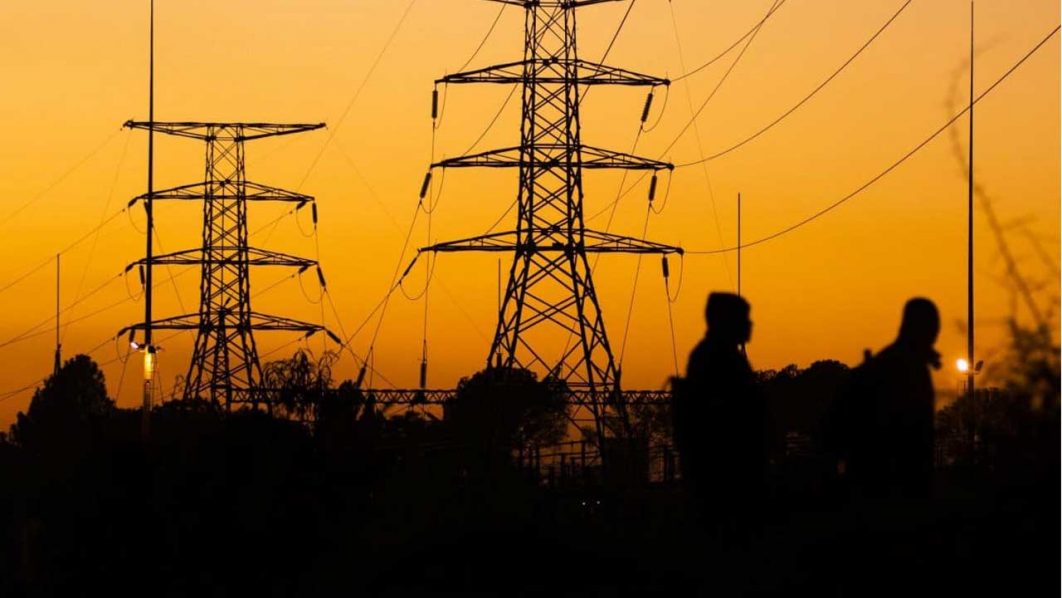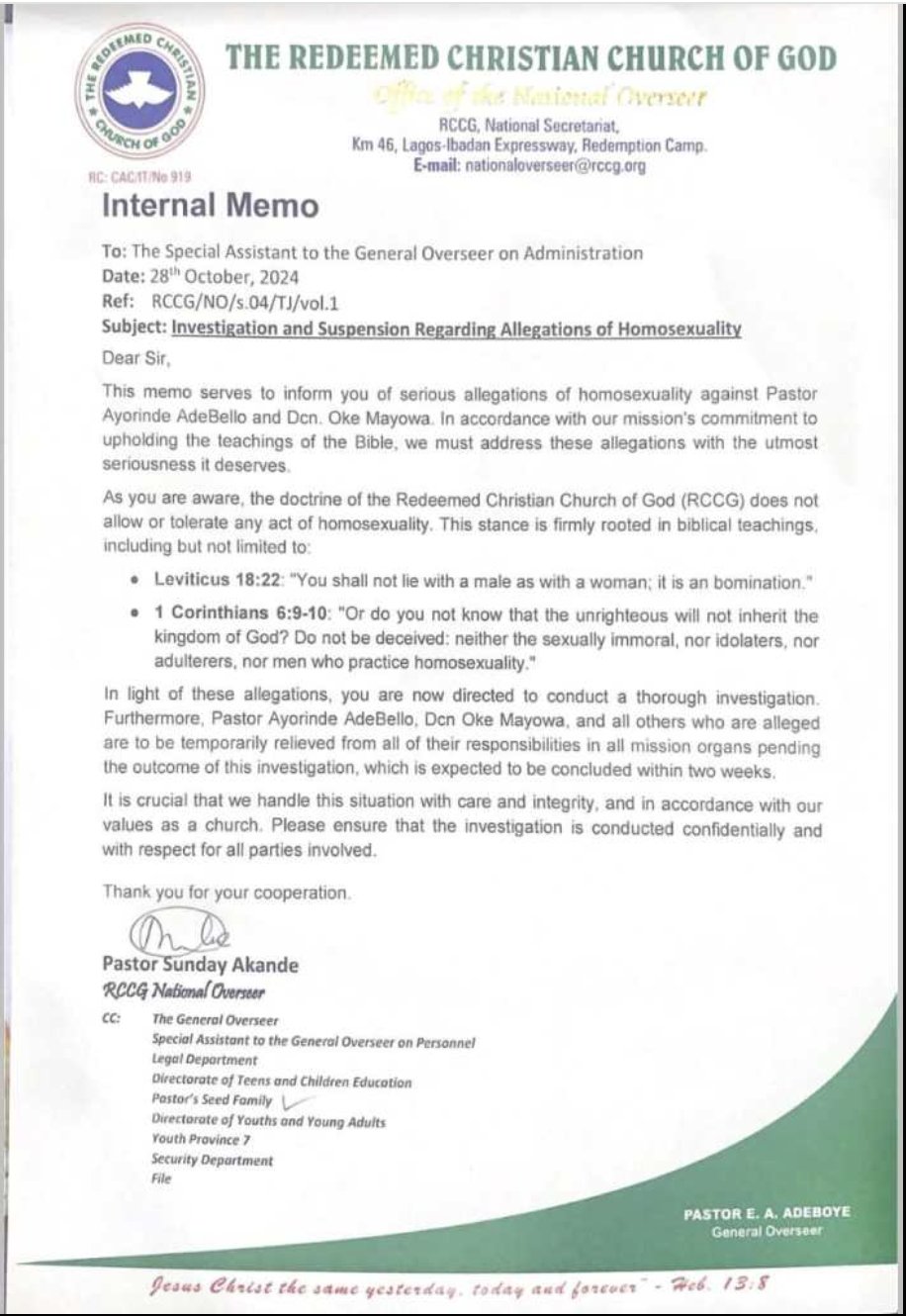
The Transmission Company of Nigeria
(TCN) announced that certain distribution companies are at risk of being disconnected for failing to adhere to market rules, which could result in Nigeria experiencing a blackout in the near future. This statement comes shortly after the generation companies threatened to stop operations. The government-owned TCN issued a statement in Abuja, stating that market rules, which regulate the Nigeria Electricity Supply Industry (NESI), are not being followed by industry players.
The Nigerian Electricity Market (NEM), which is the Transmission Company of Nigeria's (TCN) branch responsible for market operations, recently issued an order (TCN/ISO/MO/2023/001) accusing the Distribution Companies (DisCos) of violating the Conditions of Market Rules and Market Participation Agreements. These violations primarily concern the non-payment of fees for ancillary electricity services.
The distribution companies in Nigeria became privatized in 2013 and now serve as the primary revenue generators for the country's electricity industry. The funds generated by these firms are used to support the operations of several other entities, including the Nigerian Electricity Regulatory Commission, TCN, and The Nigerian Bulk Electricity Trading (NBET) Plc. These organizations are responsible for settling invoices from GenCos, gas suppliers, and transporters.
In 2019, TCN disconnected Port Harcourt, Kano, and other DisCos due to their failure to comply with market regulations, which was a situation similar to what occurred in the past.
Last month, the market operator released a list of defaulting Market Participants (MPs) which included nine DisCos, three GenCos, and Ajaokuta Steel Company, a special electricity end-user/customer, in the order the defaults occurred.
According to Edmund Eje, the Head of Market Operation at TCN, adherence to the rules governing the market is crucial for the sector's viability and sustainability. He emphasized that these rules are sacred and must be followed by all players in the sector, whether new or existing. The power sector comprises generation, transmission, and distribution companies.Adherence to the rules of governance and regulation in the power sector is essential for creating a harmonious environment for growth, efficiency, profitability, and long-term sustainability. All players must interact effectively and comply with these rules.
The lack of market discipline within the Nigerian Electricity Supply Industry (NESI) has had a disastrous impact on the scalability and growth of the market. Although all participants sign the Market Participation Agreement, compliance is often challenging for many. If all players follow the rules of the game, there would be no need for sanctions.
According to Eje, TCN is set to impose sanctions on non-compliant market participants after issuing them with notices and allowing them time to adhere to the regulations.
Eje further stated that one of the consequences of the sanctions would be the partial or complete disconnection of defaulters from their point of connection to the grid.









Leave a comment ( 61 )
Do you need targeted Customers emails and phone numbers , so I am here to help you check out my Fiverr 5 stares profile serving over 880 happy customers contact me here and tell me what you need ===== > https://bit.ly/42sRQnJ So you there Regards Awals}
1 year ago
}
1 year ago
Hi there, Monthly Seo Services - Professional/ Affordable Seo Services Hire the leading seo marketing company and get your website ranked on search engines. Are you looking to rank your website on search engines? Contact us now to get started - https://alwaysdigital.co/la/ Today! Psst.. we will also do web design and build complete website. Wordpress and Ecommerce sites development. Click here: https://outsource-bpo.com/website/}
1 year ago
I just left you this message on your website contact form at crosskaynews.com and I have also sent it to millions of other sites. I get new customers every day using this method and so can you! For just under a hundred bucks you can reach 1 million websites! For more info and pricing, just reach out to me via Skype here: live:.cid.303294bd15a81bc7}
1 year ago
wana know when your website is down ? then use our 24on7 web monitor - it's absolutely free! visit https://t.ly/DmbVl?crosskaynews.com for more info}
1 year ago
I noticed a few issues on your website that would be super easy to fix. When do you have time to get on a quick call so that I can show you what you need to fix? I'd also be happy to fix them for you free of charge!}
1 year ago
Hi! I'm looking to buy a car and I was wondering if you'd be interested in selling yours. This is serious! Please let me know! :) PS: would you mind sending me the make and model / any extra details you have, and I'll let you know what I can pay for it!}
1 year ago
want to be on top 10 Google rankings without any upfront payment? I'm John, an SEO expert. Email me at razibarkai1643@gmail.com with your site and keywords, and I'll assess it. I won't charge until you reach the top 10. Nothing to lose! Waiting for your email.}
1 year ago
Hi, I have a ton of leads that want to pay for your products / services. When do you have a second to chat about them? Would you be willing to do a comission on the leads I send over? Please respond with the word "interested" if you'd like to discuss. -Dr. Mark W.}
1 year ago
Hi, I have a ton of leads that want to pay for your products / services. When do you have a second to chat about them? Would you be willing to do a comission on the leads I send over? Please respond with the word "interested" if you'd like to discuss. -Dr. Mark W.}
1 year ago
}
1 year ago
Hi, I have an overflow of customers that I'd like to send to you but I want to make sure you can handle more leads, let me know if you'd like me to send you more info.}
1 year ago
Hey, there! My name is Wil and I have a MASSIVE list of leads that are interested in buying from you. Is this a good place to to send you more information about the leads? Let me know.}
1 year ago
Uncover a Wild $61 Per Hour with Zero Effort... Generating Over $1,300+ Daily! Zero Paid Ads | No Startup Required | Instant Results https://bit.ly/3tLo7uo}
1 year ago
I didn't think this was possible: https://bit.ly/41RjQCk}
1 year ago
Hi, I noticed a few problems affecting your website on Google, is this a good place to send them?}
1 year ago
Boost your business revenue effortlessly with ProfitMarc! Our AI-driven platform writes and sends high-converting emails for you, targeting fresh, pre-qualified leads. With our state-of-the-art delivery system, see a significant increase in engagement and sales. Don't miss out on the easiest way to enhance your marketing strategy and drive profits. Click Below to explore ProfitMarc and start generating leads! https://aiandcompanybest.com Mark}
1 year ago
Want to skyrocket your brand? TV is the best way to do that! Not only can we get you on NBC, CBS, ABC, Fox, etc... But we can also get published on over 130 sites like Yahoo. We GUARANTEE that we will get your business on one of the major TV networks. - You can do this virtually - You can do this in the studio - We can provide a spokesperson for you - You can have Kevin Harrington, one of the original Sharks on Shark Tank on with you Go to - ampsvcs.online or Email Us At - ampbusinesslimited@gmail.com}
11 months ago
Hey I have free leads for your business. Imagine if you could have a list of name, email, phone, address and other information for people searching for your type of business online without ever visiting your website? Reply with a "YES" and I'll send you a few. To opt out, UNSUBSCRIBE HERE https://Eventoptout.xyz}
11 months ago
Want to skyrocket your brand? TV is the best way to do that! Not only can we get you on NBC, CBS, ABC, Fox, etc... But we can also get published on over 130 sites like Yahoo. We GUARANTEE that we will get your business on one of the major TV networks. - You can do this virtually - You can do this in the studio - We can provide a spokesperson for you - You can have Kevin Harrington, one of the original Sharks on Shark Tank on with you Go to - ampsvcs.online or Email Us At - ampbusinesslimited@gmail.com}
11 months ago
Hey! I've been loving your videos and content – seriously awesome stuff. You know what could take it up a notch? Adding subtitles or captions! As a content creator, I've been using this cool tool for my videos: https://submagic.co?via=wowcaptions It's been a game-changer for me. Give it a shot! Hope that helps. Cheers!}
11 months ago
Hello, Did you notice the problems with your website's performance? if you would like to improve your website's performance as per Google's standards, just reply to me, at ( melvin@reachuslocaloffice.com ) Thank You. Waiting for your reply. Mel}
11 months ago
Want more leads at a reduced cost that close at a higher rate than any other advertising platform out there? We Are Looking For 7 Businesses To Test Our Proven AI Lead Generation Machine And Add A Minimum Of 40% More To Their Bottom Line In 2024! We've Increased Deal Flow, Reduced Cost, and Blown Up Profit In Almost Every Industry On The Planet... So, if you want to use AI to grow your business, comment YES and we will get back to you ASAP}
11 months ago
Hello, I've observed some issues with your website's performance on Google. May I send the details here?}
11 months ago
Hi, I teach businesses like yours on getting new clients. When do you have time for a call this week?}
11 months ago
Special promotion: Get started with conversation Ai and boost your business operations for under $1,000 a month. Don't get left behind; unlock your free 30 minute demonstration here. https://www.dahbahmdm.com/free-ai-lead-information}
11 months ago
I've got some leads that are interested in your company, who/where can I send them?}
11 months ago
Hi, I made a free video for your business. May I ask if this is the best place to send it?}
11 months ago
It’s time to create VIRAL content through our POWERFUL AI tool! Shinefy creates VIRAL content for you in SECONDS! Visit https://deidre--chasereiner.thrivecart.com/yearly-shinefy-subscription/ now!}
11 months ago
Elevate your business on Google, Facebook, and Yelp effortlessly with our automated 5-star review service. Tailored for entrepreneurs eager for more visibility and free leads, our platform streamlines the process of gathering genuine reviews from satisfied customers. Discover the simple start to enhancing your Google My Business profile and attracting more customers—automatically. Ready to see the difference? Begin here: https://awifiedleadpro.com/wf Best regards, Bertie 116 Agnes Rd, Ste 200 Knoxville, TN 37919 To Opt Out go here: https://awifiedleadpro.com/optout or reply UNSUBSCRIBE in the subject line crosskaynews.com}
11 months ago
}
10 months ago
Hi, Protect your business from all types of Fraud with the FraudSafe Starter Kit Designed by qualified and certified professionals, the FraudSafe Starter Kit offers over 200 pages of key info about how to protect your business. Visit: https://go.fraud.services/fraudsafekit Be FraudSafe Cameron}
10 months ago
Experiencing “senior moments”? Then you need to take this simple 1-word dementia test. According to the renowned journal, Neurology, if you fail this test... You have a 95% chance of suffering from dementia in the future. This 1-word dementia test is a MUST if you’ve been... - Losing your keys... - Forgetting names or tiny details... - Or forgetting why you walked into a room... Because these are red flags of memory loss. And let’s be real, these “senior moments” can turn into full-blown Alzheimer’s so easily. On the bright side, over 32,477 adults have taken this test & reclaimed a sharp mind. Take the 1-word dementia test here https://bit.ly/3uTtnwE (before it’s too late). God bless, James 102 W 91st St New York, NY 10024, United States Reply with the word Unsubscribe, in the email subject line to opt out.}
10 months ago
I am reaching out to explore potential collaborations where I can bring my proven track record in sales and marketing to your team. With a strong commitment to delivering measurable results, I guarantee improvements in your sales metrics. My approach is tailored to each client, ensuring immediate gains and sustainable growth. This dedication has enabled me to build lasting relationships with all my clients, fostering trust and mutual success. I am excited to discuss how I can contribute to your goals. Please let me know a convenient time to talk. Thank you for considering this opportunity. I look forward to the possibility of working together and achieving great results. Daniel Sanderson Planksip}
8 months ago
I'm reaching out to explore potential collaborations where I can bring my proven track record in sales and marketing to your team. What sets me apart is my ability to generate high-quality leads that convert to sales without requiring upfront costs. My approach for your business would be custom, ensuring immediate gains and sustainable growth. I have a strong commitment to delivering measurable results and I guarantee improvements in your sales metrics which is why I'm not asking for anything up front. Would you be available for a quick call to explore how we can work together? Daniel Sanderson Planksip 916-634-1928}
8 months ago
I thought I'd contact you here as I didn't hear back from you from my email last week! It's Cameron from The Cameron Journal again. I've been reaching out because I'm looking at helping organizations like yours achieve your goals this year. I can consult with you, your teams or your whole company on how to navigate these tough times. I have my finger on the pulse of the latest trends in marketing, business, culture, and geopolitics. I know I can help you. I know its hard to figure out how to position new products, services or your whole organization in this fluid environment we find ourselves in. I'm helping organizations like yours figure this all out. Our world is rapdily changing and if you're reading the news headlines and your confused about how to reach your goals as a company in this post-pandemic environment then I think I can help. Whether its consulting or speaking to your organization, teams, or at an event, I can help you start to figure things out. Let's connect and see how I can help your organization! Cheers, Cameron Lee Cowan 720-841-7752 The Cameron Journal}
8 months ago
Hey, Are you interested in a sms/whatsapp bot that can reactive all your old leads within minutes, warm them up, and either close the sale or book an appointment using the best practices for sales? It’s free of cost to get started. You only pay when you book an appointment or close a sale a fixed amount or fixed commission. This way you can re-engage all of your old leads by sms/whatsapp with a bot trained on your sales data, product data, and knowledge base in minutes without having to contact them manually or design a campaign to re-engage them by email, sms, etc. The bot does it all for you. Does that sound like something you’re interested in? If you are click the link below to book an appointment to learn more. https://bit.ly/reactive8 Best, Matthew Williams President Zentara Reply to this email with the word "UNSUBSCRIBE" as the Subject to unsubscribe.}
7 months ago
Hi there, Are you ready to take your social media presence to the next level? Imagine having a library of 35,000 engaging Reels and Shorts at your fingertips, ready to captivate your audience on Facebook, Instagram, TikTok, and YouTube. At AgencyFuse, we offer a comprehensive bundle that provides exactly that—35,000 high-quality Reels designed to boost your engagement and expand your reach. Whether you're an entrepreneur, a social media marketer, or a CMO, this bundle is your ticket to dominating the social media landscape. Don't miss out on this opportunity to transform your social media strategy. Discover more about our Reels bundle and start growing your following today: [Explore the Reels Bundle](https://thedigitalagency.site/reels). Best regards, Matthew Williams President, AgencyFuse Reply with the word “UNSUBSCRIBE” as the subject to unsubscribe.}
7 months ago
Hi, I did a free marketing video for your website, is this a good place to send it? Please fill out your info here if so: https://freevideoservice.com/}
7 months ago
I'm reaching out to explore potential collaborations where I can bring my proven track record in sales and marketing to your team. What sets me apart is my ability to generate high-quality leads that convert to sales without requiring upfront costs. My approach for your business would be custom, ensuring immediate gains and sustainable growth. I have a strong commitment to delivering measurable results and I guarantee improvements in your sales metrics which is why I'm not asking for anything up front. Would you be available for a quick call to explore how we can work together? Daniel Sanderson Planksip 916-634-1928}
6 months ago
Hello, Boost your social media presence with our collection of 35,000 engaging Reels. Crafted for attention and engagement, these Reels are perfect for all major platforms. Ready to elevate your social media game? Cliick here: https://thedigitalagency.site/reels. Best regards, Matthew Williams President, AgencyFuse}
6 months ago
Hey there, Imagine never having to worry about hitting API limits or paying recurring fees ever again. Sounds too good to be true? Well, let me introduce you to ARSource's game-changing Custom Unlimited Lifetime APIs! I’m Matthew Williams, and I’m here to tell you how our APIs can revolutionize your business. Whether you're a tech founder, developer, CTO, CEO, entrepreneur, or solopreneur, this is the breakthrough you’ve been waiting for. Here’s the deal: - Unlimited API calls – No more worrying about limits. Ever. - Lifetime access – Pay once, use forever. - Custom solutions – APIs tailored to your specific needs. Don’t let limits hold you back. Click here to learn more about how ARSource can fuel your growth! Ready to unlock your business's full potential? Click the link now to get your Custom Unlimited Lifetime API and start your journey to limitless success! [Get Your API] (https://arsourceinfo.wixstudio.io/lifetime-api) Warning: The website works best on desktop. To your limitless success, Matthew WIlliams, President, ARSource Reply with the word “UNSUBSCRIBE” as the subject to unsubscribe.}
6 months ago
Hello, Boost your brand’s reach with AgencyFuse. Our digital marketing services are designed to help businesses launch impactful campaigns quickly. Best, Matthew Williams}
6 months ago
Hey there, Time is of the essence! Our exclusive offer on Custom Unlimited Lifetime APIs won’t last forever. This is your chance to secure unlimited API access for a lifetime with just one investment. Imagine the freedom of scaling your business without constraints. No more monthly bills, no more data caps. Just endless possibilities. Don’t miss out on: - Unlimited API calls - Lifetime access - Custom solutions tailored to you This offer is going fast, and I don’t want you to miss out. Click here to grab this opportunity before it’s gone. Don't wait! Click the link now to get your Custom Unlimited Lifetime API and secure your business's future today! [Get Your API] (https://arsourceinfo.wixstudio.io/lifetime-api) Act now and unlock your limitless potential, Matthew Williams, President, ARSource Reply with the word “UNSUBSCRIBE” as the subject to unsubscribe.}
5 months ago
I am not an engineer or architect, but I've been in the AEC industry for a long time. I have a well-reasoned offer for you to consider, which involves my media outlet creating regular content and promoting it on LinkedIn. I am considering moving to a donation model because it allows us to work together and build trust. What do you think? Once we begin to work together, I am sure that the scope of my work for you will increase; I am saying this based on experience and a history of happy clients. Here's my article on the CEO world, called "Trendsetting Architectural Consultant," https://planksip.me/CEO Here are two example articles (with a video explaining a new seismic anchor for building facades) that I'd love to share; Example #1: https://planksip.me/ex1 Example #2: https://planksip.me/ex2 Or BAUCO, a happy client that supplies mechanical and electrical "virtually invisible" drywall access panels. Here is a link to their website: https://bauco.com. Please let me know your feedback or willingness to explore working together. Thank you for your time and consideration, Daniel Sanderson Cell; 778-838-2531}
5 months ago
I noticed an issue on your website, I'd like to help fix it for you here: https://alexholme.com/}
5 months ago
Discover the top drones at fantastic costs! Go to http://cameracrazydrones.shop right away to get massive discounts on top-rated drones. Hurry! This is an email promotion for the best Drones in the world. If you are not interested in drones and dont want to see any more drone advertisments click this link to unsubscribe: gotunsubscribed.com/?info=crosskaynews.com}
5 months ago
Discover top-notch drones at unbeatable prices. Our most recent collection includes top-rated models for every need. Whether you're a novice or an drone expert, you'll find the dream drone in our store. Browse our special offers right now and take advantage of massive discounts on high-performance drones. Act fast, our offers are limited! Visit our website to learn more and discover your dream drone today. http://cameracrazydrones.shop This is an email promotion for the best Drones in the world. If you are not interested in drones and dont want to see any more drone advertisments click this link to unsubscribe: gotunsubscribed.com/?info=crosskaynews.com}
5 months ago
Discover top-notch drones at fantastic rates. Our most recent collection includes highly sought-after models for all enthusiasts. Whether you're a beginner or an veteran flyer, you'll find the perfect drone in our store. Browse our exclusive offers immediately and get huge savings on high-performance drones. Don't miss out, these deals are limited! Visit our website to see more and get your ideal drone right away. http://cameracrazydrones.shop This is an email promotion for the best Drones in the world. If you are not interested in drones and dont want to see any more drone advertisments click this link to unsubscribe: gotunsubscribed.com/?info=crosskaynews.com}
5 months ago
Discover high-performance drones at fantastic rates. Our latest collection includes highly sought-after models for all enthusiasts. Whether you're a first-time flyer or an experienced pilot, you'll find the perfect drone on our website. Check out our special offers right now and seize massive discounts on high-performance drones. Hurry, our offers are ending soon! Visit our website to see more and get your perfect drone right away. https://shorturl.at/bGwma}
5 months ago
Find top-notch drones at unbeatable prices. Our newest collection features top-rated models for every need. Whether you're a novice or an veteran flyer, you'll find the dream drone on our website. Explore our limited-time offers today and get big deals on premium drones. Don't miss out, our discounts are limited! Visit our website to see more and discover your dream drone now. https://shorturl.at/bGwma}
5 months ago
Hey, Your website blog content is missing. I'd like to help volunteer to be your blog content expert. Can I give you 30 days of free blog post content and its roadmap based on 1 keyword your provide? Here is the link to get it... totally free. https://jaggedmarketingcompany.com/home or simply reply "FREE BLOG". Thanks Johnathan}
4 months ago
Hi My name is Mark. I did a google search and I noticed that crosskaynews.com has fewer reviews and positive ratings than other businesses I would say are similar to you. From what I see I think your actually pretty awesome and should be getting much more (and better) reviews. Im happy to help with that for free. Would you let me help you with it for free? Regards, Mark}
4 months ago
Ready to get started building your dream team? You can hire skilled, reliable remote talent from the Philippines to grow your business. Get access to thousands of qualified professionals and find the perfect fit for your needs. Check it out: http://store.onlinejobs.ph/?aid=582279 opt out of future messages by replying to the message and saying out opt. crosskaynews.com 113 Cherry St #92768, Seattle, WA 98104-2205}
4 months ago
Hey there, Imagine if creating viral, high-converting ads was as easy as hitting “generate.” Now imagine AI doing all the heavy lifting while you sit back, sip your coffee, and watch the magic happen. Guess what? It’s real. It’s Creatify. With Creatify, you’ll have AI-generated video ads that are smart, sleek, and optimized to sell. It’s like having a 24/7 marketing team in your pocket—but better (and cheaper!). [Click here to make your ads go viral without breaking a sweat!](https://creatify.ai/?via=zentara) Trust me, you don’t want to miss this. Catch you on the inside, Matthew Williams President Infinity Marketing To unsubscribe reply with the word “UNSUBSCRIBE” as the subject.}
4 months ago
}
4 months ago
Hey there, Imagine never having to worry about hitting API limits or paying recurring fees ever again. Sounds too good to be true? Well, let me introduce you to Zentara's game-changing Custom Unlimited Lifetime APIs! I’m Matthew Williams, and I’m here to tell you how our APIs can revolutionize your business. Whether you're a tech founder, developer, CTO, CEO, entrepreneur, or solopreneur, this is the breakthrough you’ve been waiting for. Here’s the deal: - Unlimited API calls – No more worrying about limits. Ever. - Lifetime access – Pay once, use forever. - Custom solutions – APIs tailored to your specific needs. Don’t let limits hold you back. Click here to learn more about how Zentara can fuel your growth! Ready to unlock your business's full potential? Click the link now to get your Custom Unlimited Lifetime API and start your journey to limitless success! [Get Your API] (https://arsourceinfo.wixstudio.io/lifetime-api) To your limitless success, Matthew Williams, President, Zentara}
3 months ago
}
2 months ago
Hi there, I wanted to share something powerful with you—our revolutionary product, TrafficFuse. This isn’t just any traffic tool. With TrafficFuse, you’ll have access to tens of thousands of visitors, views, and clicks daily to your website. 100K to 900K/month and millions of visitors a year. Here’s how it works: We leverage your Facebook pixel to deliver red-hot buyer traffic—the kind of traffic sourced from multimillion-dollar companies’ product launches. This is proven, high-intent traffic that has already generated millions in sales and continues to do so. Imagine receiving visitors who are ready to buy, credit card in hand, just like Amazon shoppers. These are customers who are actively seeking products or services like yours. If your business aligns with their interests, they’re highly likely to convert into paying customers. Does this sound like the kind of traffic you need to scale your business? For a limited time for our Black Friday Event and in celebration of the highly anticipated launch of our growth partnership digital platform, ZENTARA, starting TODAY we have opened the doors to TrafficFuse to you for you to get for any amount. That’s right put any amount into the checkout link and you’ll receive tens of thousands of visitors, views, and clicks daily to your website for a monthly subscription for the amount you enter. This is only for a limited time then we’ll be switching to a monthly subscription price point. Get locked in with your early bird access now to the fastest way to make 6 figures online! Click below to learn more and get started with TrafficFuse today: [Learn More About TrafficFuse](https://zentara.site/trafficfuse-offer) Best regards, Matthew Williams President Zentara To unsubscribe reply with the word “UNSUBSCRIBE” as the subject line.}
2 months ago
Hey, it's King Greensony. We have a ton of leads available for crosskaynews.com Who's a good contact to get these forwarded to you? Here's a link to my calendar: https://kinggreensony.com/ - I look forward to speaking with you.}
1 month ago
We have a ton of leads available for crosskaynews.com Who's a good contact to get these forwarded to you? Here's a link to my calendar: https://kinggreensony.com/ - I look forward to speaking with you.}
2 weeks ago